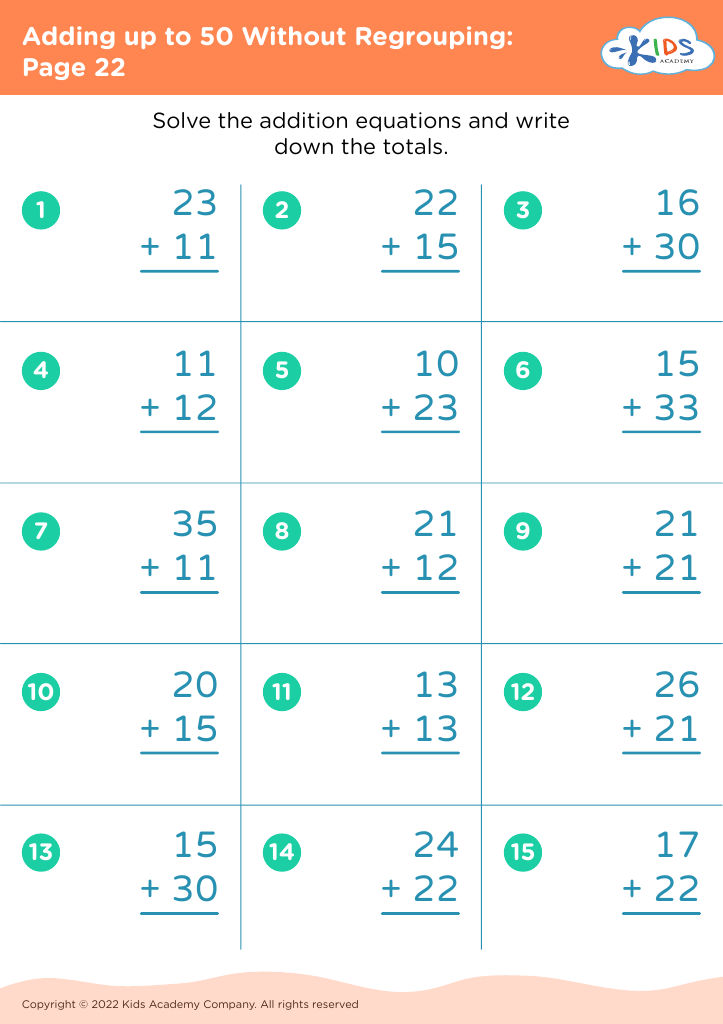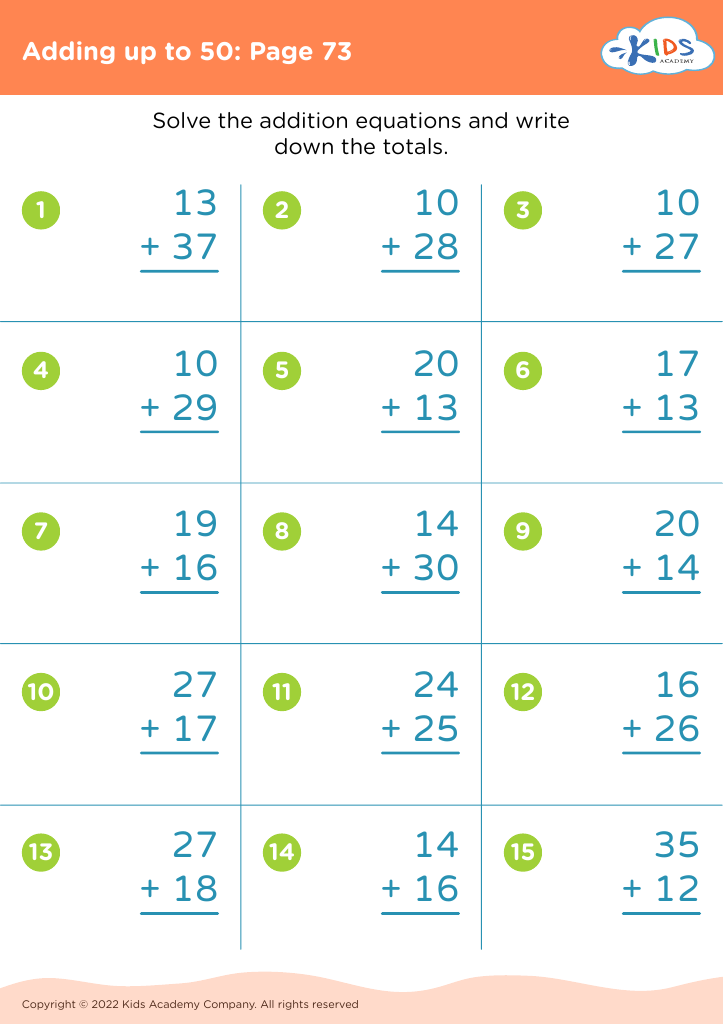Color recognition Adding up to 50 Worksheets for Ages 4-7
3 filtered results
-
From - To
Discover an engaging array of color recognition worksheets designed specifically for children ages 4-7! Our "Color Recognition Adding Up to 50" collection combines early math skills with vibrant, eye-catching visuals to keep young learners motivated. Through fun, interactive exercises, kids will explore addition problems that total up to 50 while practicing their ability to identify and name colors. Each worksheet is thoughtfully crafted to enhance cognitive skills, boost confidence in mathematics, and promote a love for learning. Ideal for classrooms or at-home practice, these worksheets are perfect for developing essential foundational skills in a playful and creative way. Dive in now!
Color recognition and early math skills, such as adding up to 50, play crucial roles in the development of children aged 4-7. Parents and teachers should prioritize these skills as they lay the foundation for future learning.
Color recognition enhances a child's ability to categorize and differentiate objects, which fosters critical thinking and observational skills. It encourages creativity and self-expression, as children use colors to convey emotions and ideas in their drawing and play.
Simultaneously, learning to add up to 50 introduces basic mathematical concepts, essential for cognitive development. Mastering simple addition boosts problem-solving abilities and helps children understand quantities and relationships between numbers. This early exposure to math foster numeracy skills that will be vital as they progress through their education.
Moreover, integrating color recognition with addition activities—such as counting colored objects—creates a fun and engaging learning environment. This holistic approach to early education ensures that children not only grasp essential skills but also develop a positive attitude toward learning. By advocating for these foundational skills, parents and teachers can significantly contribute to a child’s academic success and overall development.
















